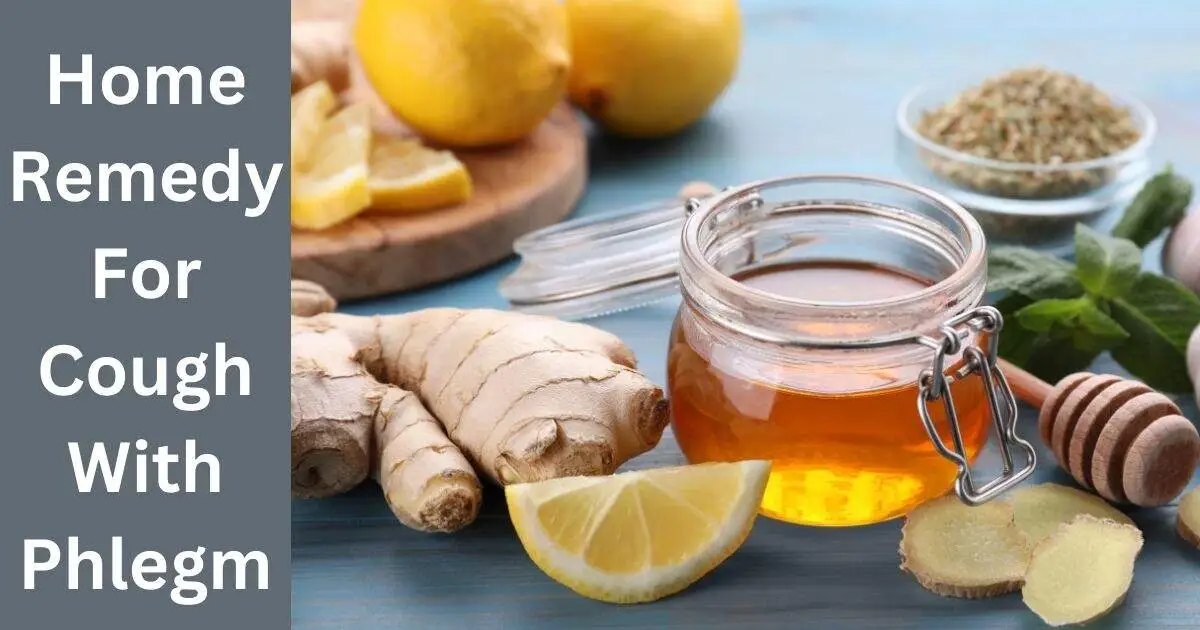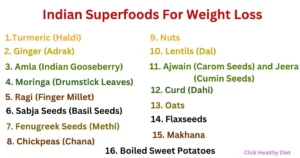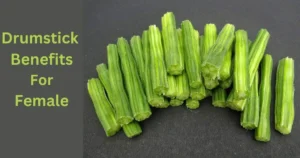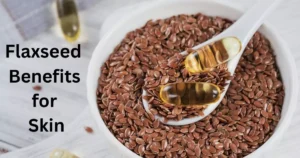Introduction
This article explores the best natural home remedy for cough with phlegm that can ease your symptoms by loosening the mucus and soothing the throat.
Phlegm also called mucus is often seen in productive or wet cough. Coughing with phlegm can be a sign of infections from your respiratory tract. There are various causes of the production of excess phlegm such as viral, and bacterial infections, allergies, chronic respiratory conditions like asthma, and chronic obstructive pulmonary disease (COPD). The color and consistency of phlegm indicate the type of infection and can be treated accordingly.
However, whatever type of cough infection is present, you can always find relief with the effective natural home remedy for cough with phlegm.
Read More: Vitamin B12 Foods Vegetarian Indian
Home Remedy For Cough With Phlegm
Fortunately, numerous traditional herbal remedies can help alleviate cough with phlegm. As per Ayurveda, herbs like tulsi, vasa, black pepper, long pepper, clove, cinnamon, honey, mulethi, yashtimadhu, and ginger possess anti-inflammatory and cough-relieving properties.
Let’s dive into the best Indian home remedy for cough with phlegm utilizing ingredients that are easily available in your kitchen.
1. Tulsi
Tulsi (Ocimum sanctum) is a rich source of vitamin C and zinc that helps to boost immunity. Additionally, it possesses antimicrobial, antibacterial, and antiviral effects which contribute to the alleviation of symptoms of cough with phlegm, cold, and other respiratory disorders.
Tulsi has expectorant and bronchodilator properties which help to loosen and mobilize mucus, and clears the airways, making breathing easier. Tulsi is an important ingredient often seen in ayurvedic expectorants and cough syrups.
Remedies
For Sore Throat- Boil water with Tulsi leaves and ginger and drink it warm.
For cold and flu- Chewing tulsi leaves relieves cold and flu.
A decoction of basil leaves, ginger, and cloves is found effective in bronchitis, pulmonary tuberculosis, asthma, influenza, cough, and cold, or you can take freshly prepared 5 to 15 ml of tulsi juice a day.
Tulsi tea is a great option for those who are suffering from a cold and cough. You can prepare tulsi tea by adding basil leaves with clove, pepper, ginger, and cinnamon to boiling water and drinking it warm.
2. Ginger
Ginger ( Zingiber officinale) contains diverse bioactive compounds with antioxidant, anti-inflammatory, and antimicrobial properties and has potential therapeutic effects. Studies suggest ginger has broncho-relaxant properties which can potentially relax contracted human airway smooth muscles.
Remedies
A combination of 5ml of Ginger juice with honey is effective in reducing the coughing frequency instantly.
Add 0.5 gram to 1 gram ( approx 1/4 teaspoon) of Dry ginger powder with jaggery or honey to get rid of symptoms of cough and cold.
Or simply you can cut a small slice of ginger and keep in your mouth and suck it just like candy for some time. You can repeat this twice a day. This works great, especially for allergic cough, and gives immediate relief.
3. Turmeric
Studies suggest that turmeric (Curcuma longa) exhibits anti-inflammatory and anti-microbial properties. In traditional medicines like Unani and Ayurveda, turmeric has been used for the treatment of runny nose, sinusitis, and other chronic respiratory disorders like asthma and COPD (chronic obstructive pulmonary disease).
Remedies
Mix 1/4 teaspoon of turmeric powder with honey and take it 2 to 3 times a day as it’s beneficial for colds, coughs, and migraine.
4. Black Pepper
Black Pepper (Piper nigrum) contains various phytochemical compounds like alkaloids, flavonoids, phenols, tannins, terpenes, and steroids that show multiple benefits for your health. Owing to its nutrients, and bioactive components in pepper, it acts as an antimicrobial, anti-viral, anti-bacterial, antipyretic, anti-inflammatory, antioxidant, and anti-asthmatics and boosts immunity.
Black pepper is a traditional medicine that has the potential to protect from colds, coughs, throat infections, and fever.
Remedies
0.5 to 1 gram of pepper powder when combined with a teaspoon of honey gives optimum results for cough, cold, and asthma-relieving respiratory symptoms.
Or you can prepare ginger and pepper tea and add honey before you serve and drink it warm.
5. Cinnamon
Cinnamon (Cinnamomum zeylanicum) bark is commonly used as a food spice and in traditional medicines. It contains cinnamaldehyde, cinnamic acid, essential oils, and polyphenols.
Cinnamon has been used in traditional medicine preparation since ages. Cinnamon possesses various medicinal properties and can be used as an expectorant, anti-inflammatory, antipyretic, anti-allergic, anti-oxidant, and anti-bacterial.
Cinnamon as per Ayurveda, is known to lower the Kapha dosha because of its hot potency and ruksha and Tikshna guna.
Remedies
You can prepare a decoction by adding cinnamon, ginger, and clove which can be consumed for health conditions like cough, cold, pulmonary tuberculosis, and asthma.
Or you can take 1/4 teaspoon of Cinnamon powder with 1 teaspoon of honey to relieve cough symptoms.
6. Honey
Studies suggest honey has anti-inflammatory, cough suppressant, and antibacterial properties. Honey has a soothing quality that eases irritation and inflammation in the throat and airways, which as a result reduces coughing.
Honey is effective as a natural cough suppressant. It can lower coughing frequency and severity, leading to better sleep and rest.
Honey has mild anti-bacterial properties which can help avoid secondary bacterial infections during a viral illness.
According to studies, honey is recommended for kids older than one year with cough, runny nose, and other viral upper respiratory infection symptoms.
1 to 1.5 tsp honey can be given before bedtime for children more than 1 year as a cough remedy. Honey is not recommended for kids less than one year old.
Studies suggest you can also prefer a combination of lemon juice with honey which can be a helpful therapy to fight off infections that may be causing cough. Lemon acts as an immune booster and reduces irritation.
7. Jaggery
Studies suggest Jaggery is potent against dry cough, allergic cough, and sputum alleviation. Jaggery acts as a natural lungs cleanser, that can help relieve cough and cold symptoms. It helps to clear the respiratory airways and facilitates easy breathing.
Jaggery plays a preventive role against dust-induced cough or smoke-induced lesions in the lungs. Regular consumption of jaggery can help to avoid workplace hazards in industries that deal with dust and smoke.
Jaggery is an immunity enhancer.
Remedies
When jaggery is mixed with dry ginger powder or freshly prepared ginger juice gives optimum results for cold and cough.
Tulsi leaves with jaggery is a great combination to fight against viral infections like cold and flu.
Prepare a decoction with jaggery and cinnamon and serve it hot.
8. Kadha
You can prepare magical kadha tea which is beneficial for all types of cough such as dry, allergic, and wet cough. This kadha can be consumed by all age groups from children to old.
How to Prepare Kadha
- Boil water in a pan. Add a half teaspoon of tea leaves.
- Add crushed ginger 1 teaspoon, 5-6 peppercorns, 1 cinnamon stick, 3-4 cloves, 4-5 tulsi leaves, ¼ tsp of turmeric powder, and jaggery as per taste.
- Boil the mixture on a medium flame for around 10 minutes.
- Once done, switch off the flame and strain it.
- Serve it hot to relieve cough and cold and ease sore throat.
- You can take this magical kadha of 1 cup 2-3 times a day.
- If you are preparing this kadha for kids, skip tea leaves and add rest all other ingredients.
- This magical kadha is very effective and relieves the symptoms of common cold and cough with phlegm.
9. Steam Inhalation
One of the efficient home remedy for cough with phlegm and nasal congestion is steam inhalation. Add a few drops of eucalyptus oil to a pot of hot water and breathe in the steam for 5- 7 minutes. You can use a towel to cover your head while inhaling the steam. Repeat this 2-3 times a day to get instant relief from the symptoms.
Precaution
You can take home remedy for cough with phlegm along with medicines for best results.
These natural ayurvedic medicines are equally effective in other respiratory conditions like asthma, allergic cough, dry cough, common cold, and tuberculosis.
But sometimes when the cough is persistent, severe, or associated with other significant symptoms like chest pain, difficulty in breathing, high temperature, and coughing up blood, it becomes crucial to seek medical treatment.
If you have any health conditions, I recommend consulting your doctor first before adding herbs to your routine. Sometimes, herbs may interact with the drugs you are taking for your medical conditions, so it is better to consult your health expert.
Useful Tips
When you are suffering from a cough or cold, sleep on the lateral side of your body preferably the left side. Avoid sleeping in the supine position. This may create uneasiness and discomfort while sleeping.
Add soups, kadha, and herbal tea to your routine for hydration and therapeutic benefits.
Avoid drinking cold drinks, ice cream, cold curd, and milk. One should prevent eating deep-fried, oily food, and refrigerated cold food items.
One should always use footwear, even when you are at home. Do not walk barefoot and keep yourself warm. Prevent going outdoors; if you cannot avoid it, go only when necessary.
Do not smoke or consume alcohol while having a cough or cold.
Salt water gargling is an effective home remedy for soothing a sore throat, reducing phlegm buildup, and relieving cough symptoms.
Salt water gargle
- Take one glass of warm water and mix half a teaspoon of salt.
- Take a sip and gargle for around 20 to 30 seconds and spit it out once finished. Repeat this until you have used the entire glass of water.
Conclusion
In conclusion, herbal medicines mentioned in this article are not only recommended as the best home remedy for cough with phlegm but also have multiple benefits for your health. These ayurvedic medicines help boost immunity, support respiratory health, aid in digestive health, act as anti-inflammatories, and antioxidants, and have effective soothing and healing properties.
One should introduce herbs such as tulsi, turmeric, ginger, cinnamon, clove, and pepper into their daily routine via food, tea, decoction, or ayurvedic remedies to improve overall health and well-being.
FAQ’S
Q1. How do you get rid of phlegm and cough fast?
Ans: The simple ways to get rid of phlegm and cough are
- Gargle with warm salt water
- Have herbal teas
- Drink kadha
- Have a teaspoon of honey and ginger juice
- Drink warm water
- Take steam inhalation
Q2. What can I drink for a phlegm cough?
Ans: You can drink warm water, herbal tea, decoction, and gargle with warm salt water for phlegm cough.
Q3. Do I need antibiotics if coughing up yellow phlegm?
Ans: Yellow-colored phlegm can be an indication of infection and you may need antibiotics, thus one should consult their nearest health expert for further evaluation.
Q4. Does honey stop you from coughing?
Ans: Honey acts as a natural cough suppressant and possesses anti-inflammatory and antibacterial properties that help to relieve cough symptoms.
Q5. Is it ok to drink milk when you cough?
Ans: One should prevent taking milk when you are having a cough. If you cannot avoid it, prefer drinking toned milk mixed with a pinch of turmeric powder.
Q6. What is the fastest home remedy for cough?
Ans: The fastest and most effective home remedies for cough are
- Steam inhalation
- Herbal tea
- Decoction of herbs
- A teaspoon of honey with ginger juice
References
Tulsi Plant (Ocimum sanctum L.)
https://www.researchgate.net/publication/342674549_A_Review_Paper_on_Tulsi_Plant_Ocimum_sanctum_L
A review medicinal and traditional uses on Tulsi plant (Ocimum sanctum L.)
Tulsi (Ocimum sanctum): Health Benefits and Nutritional Wonders
https://actascientific.com/ASNH/pdf/ASNH-07-1293.pdf
Bioactive Compounds and Bioactivities of Ginger
https://www.mdpi.com/2304-8158/8/6/185
The Amazing and Mighty Ginger
https://www.ncbi.nlm.nih.gov/books/NBK92775/
Effects of Ginger and Its Constituents on Airway Smooth Muscle Relaxation and Calcium Regulation
https://www.ncbi.nlm.nih.gov/pmc/articles/PMC3604064/
Turmeric, the Golden Spice From Traditional Medicine to Modern Medicine
https://www.ncbi.nlm.nih.gov/books/NBK92752/
CINNAMON: A MEDICINE FOR COUGH, COLD & CHOLESTEROL
https://www.researchgate.net/publication/353558837_CINNAMON_A_MEDICINE_FOR_COUGH_COLD_CHOLESTEROL
Honey for treatment of cough in children
https://www.ncbi.nlm.nih.gov/pmc/articles/PMC4264806/
A spoonful of honey helps a coughing child sleep
https://www.ncbi.nlm.nih.gov/pmc/articles/PMC3601686/




